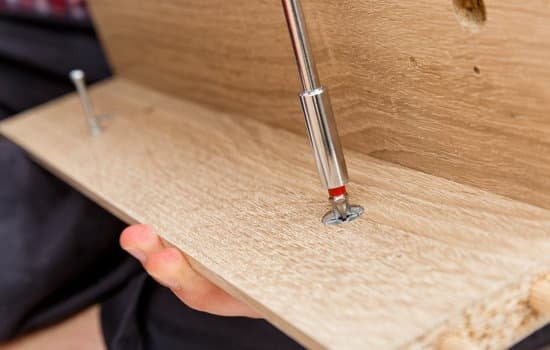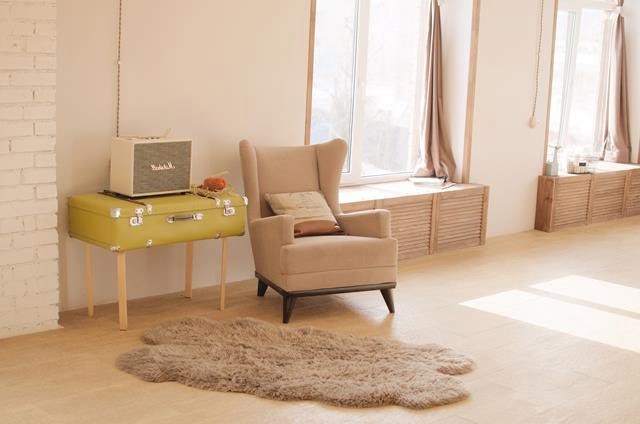Are you wondering, “What is the interest rate on a home improvement loan?” Home improvement loans play a crucial role in helping homeowners enhance their living spaces and increase the value of their properties. Whether it’s renovating a kitchen, adding a new bathroom, or upgrading the landscaping, these loans provide financial assistance to make desired improvements a reality.
When it comes to home improvement loans, there are various options available to homeowners. Personal loans, home equity loans, and home equity lines of credit are among the common choices that offer different terms and conditions to suit individual needs. Understanding these options can help borrowers make informed decisions regarding their financing needs.
The interest rates on home improvement loans are influenced by several factors such as credit score, loan amount, and loan term. It is essential for homeowners to explore how these elements impact their interest rates in order to secure the most favorable terms possible for their projects. By comparing offers from different lenders and understanding what affects interest rates, borrowers can make strategic choices to save money over the life of the loan.
Types of Home Improvement Loans
Home improvement loans come in various forms, each with its own set of advantages and considerations. Personal loans are a common option for financing home renovations.
These unsecured loans typically have shorter terms and higher interest rates than secured loans, but they can be a good choice for smaller projects where a homeowner doesn’t want to leverage their home equity. Home equity loans, on the other hand, allow homeowners to borrow against the equity in their homes, providing lower interest rates due to the collateral involved.
Another popular choice is a home equity line of credit (HELOC), which functions similarly to a credit card but uses the home as collateral. HELOCs have variable interest rates that are usually lower than those of personal loans but higher than those of traditional home equity loans.
This type of loan provides borrowers with flexibility in accessing funds over time and only paying interest on the amount borrowed. Deciding which type of loan is best suited for your needs will depend on factors such as the scale of your renovation project, your credit score, and how quickly you need access to funds.
Understanding what is the interest rate on a home improvement loan can significantly influence your decision-making process when choosing among different loan options. The interest rate directly affects your total cost of borrowing and determines how much you’ll pay monthly towards your loan.
Factors like credit history, loan term, and market conditions all play a role in determining the interest rate you will receive from lenders. By exploring each type of loan available and comparing their respective interest rates, homeowners can make informed decisions about which financing option aligns best with their budget and renovation goals.
| Loan Type | Average Interest Rate |
|---|---|
| Personal Loan | 9-12% |
| Home Equity Loan | 4-6% |
| HELOC | 3-5% |
Factors Affecting Interest Rates
Interest rates on home improvement loans are determined by a variety of factors, all of which play a crucial role in the overall cost of borrowing. Understanding these factors can help homeowners make informed decisions when seeking financing for their renovation projects. Here are some key considerations that affect the interest rate on a home improvement loan:
- Credit Score: One of the most significant factors influencing the interest rate you will receive on a home improvement loan is your credit score. Lenders use this to assess your creditworthiness and determine the risk of lending to you. Generally, borrowers with higher credit scores are offered lower interest rates, as they are considered less risky.
- Loan Amount: The amount you borrow for your home improvement project can also affect the interest rate on your loan. Typically, larger loan amounts may come with lower interest rates, as lenders may be more willing to offer better terms for bigger loans.
- Loan Term: The length of time you have to repay the loan, known as the loan term, can impact the interest rate as well. In general, shorter loan terms tend to have lower interest rates compared to longer terms. This is because lenders prefer shorter repayment periods due to reduced risk.
Considering these factors and how they interact with one another is essential in determining what interest rate you will be offered on a home improvement loan. By improving your credit score, borrowing an appropriate amount, and selecting a reasonable loan term, homeowners can potentially secure better rates for their renovation financing needs.
It’s important for homeowners to keep in mind that individual lenders may have different criteria for determining interest rates on home improvement loans. To get a clearer picture of what is available in the market, it’s advisable to shop around and compare offers from various lenders. By doing so, homeowners can identify competitive rates and terms that align with their financial goals and circumstances.
Average Interest Rates
When considering a home improvement project, one of the most critical aspects to take into account is the interest rate on the loan you’ll be applying for. The interest rate plays a significant role in determining the overall cost of borrowing money for your renovation needs. Typically, the interest rates on home improvement loans can vary depending on several factors, including the type of loan, loan amount, loan term, and your credit score.
According to recent data, the average interest rates for home improvement loans range from around 5% to 36%. Personal loans, which are unsecured loans that homeowners can use for renovations, generally have higher interest rates compared to secured loans like home equity loans or HELOCs (Home Equity Lines of Credit). Lenders determine your specific interest rate based on risk factors such as credit history and income level.
It is important to note that these average interest rates are just rough estimates and can fluctuate based on market conditions and individual lender policies. To get a precise idea of what is the interest rate on a home improvement loan you could qualify for, it’s advisable to reach out to different lenders and inquire about their current rates.
By comparing offers from multiple sources, you can ensure that you’re getting the best possible deal that suits your financial situation.
| Loan Type | Average Interest Rate |
|---|---|
| Personal Loans | 10%-36% |
| Home Equity Loans | 4%-8% |
| HELOCs | 3%-6% |
Comparing Lenders
When considering taking out a home improvement loan, one of the crucial factors that homeowners need to pay attention to is the interest rate. The interest rate on a home improvement loan can significantly impact the overall cost of borrowing and ultimately determine how much homeowners will pay over the life of the loan.
So, what is the interest rate on a home improvement loan, and how can homeowners ensure they are getting the best possible deal? Let’s delve into some tips on comparing lenders to secure favorable interest rates and terms.
To make an informed decision about which lender to choose for a home improvement loan, it’s essential to shop around and compare offers from various financial institutions. Here are some tips on how homeowners can effectively compare lenders to find the best interest rates and terms:
- Check your credit score: A good credit score is key to qualifying for lower interest rates on a home improvement loan. Before applying for loans, check your credit report and work on improving your score if needed.
- Research different types of lenders: Explore offers from traditional banks, credit unions, online lenders, and peer-to-peer lending platforms to see who can offer you the most competitive rates.
- Get multiple quotes: Don’t settle for the first offer you receive. Request quotes from multiple lenders and compare not only interest rates but also fees, repayment terms, and any other relevant terms and conditions.
By following these tips and thoroughly comparing lenders, homeowners can increase their chances of securing a home improvement loan with a favorable interest rate that fits their budget. Remember that a lower interest rate not only means saving money over time but also potentially increasing the overall value of your property through smart investments in renovations or upgrades.
Benefits of a Lower Interest Rate
Securing a lower interest rate on a home improvement loan can have significant financial benefits for homeowners. A lower interest rate means that you will ultimately pay less money over the life of the loan. This can result in substantial savings, especially for larger loan amounts or longer loan terms. By shopping around and comparing offers from different lenders, homeowners can potentially save thousands of dollars in interest payments.
In addition to saving money, a lower interest rate can also make monthly payments more manageable. With a reduced interest rate, the total amount of interest paid each month will be lower, leading to lower monthly payments. This can free up extra cash each month that can be allocated towards other financial goals or expenses. Ultimately, securing a lower interest rate can provide homeowners with greater financial flexibility and peace of mind.
Furthermore, a lower interest rate can also impact the overall affordability of your home improvement project. With less money going towards interest payments, more funds can be directed towards renovations and upgrades for your property.
This allows homeowners to maximize the value of their investment and create the home of their dreams without breaking the bank. To achieve these benefits, it is essential for homeowners to take steps to improve their credit score and financial profile in order to qualify for the best interest rates available in the market today.
How to Qualify for the Best Rates
When looking to secure a home improvement loan, one of the key factors that can greatly impact your borrowing costs is the interest rate you receive. The interest rate on a home improvement loan is determined by several factors, including your credit score, loan amount, and loan term. To increase your chances of qualifying for the lowest interest rates available, there are specific steps homeowners can take to present themselves as attractive borrowers to lenders.
Improve Your Credit Score
One of the most influential factors in determining the interest rate on a home improvement loan is your credit score. Lenders use your credit score to assess your risk as a borrower and determine the interest rate they will offer you.
To qualify for the best rates, it’s essential to maintain a good credit score by making timely payments on existing debts, keeping credit card balances low, and avoiding opening new lines of credit before applying for a home improvement loan.
Show Stable Income and Employment
Lenders want assurance that you have a stable income and employment history to support your ability to repay the loan. Providing documentation such as pay stubs, tax returns, and employment verification can help demonstrate your financial stability. Consistent income and employment history can make you a lower-risk borrower in the eyes of lenders, increasing your chances of qualifying for lower interest rates.
Consider Loan Term and Amount
The terms of your home improvement loan, including the repayment period and loan amount, can also affect the interest rate offered to you. Generally, shorter loan terms and lower loan amounts tend to come with lower interest rates.
By considering these factors when applying for a home improvement loan, homeowners can potentially qualify for more favorable interest rates. It’s important to carefully evaluate how much you need to borrow and how quickly you can comfortably repay the loan to optimize both the terms and interest rate offered to you.
By taking these proactive steps in improving your credit score, showcasing stable income and employment history, and carefully considering the loan term and amount needed, homeowners can position themselves favorably when seeking a home improvement loan with competitive interest rates. Remember that shopping around and comparing offers from different lenders is also crucial in securing the best possible rates for your specific financial situation.
Conclusion
In conclusion, understanding the interest rate on a home improvement loan is crucial for homeowners looking to enhance their property value. The type of loan chosen, whether it’s a personal loan, home equity loan, or home equity line of credit, will play a significant role in determining the interest rate.
Factors such as credit score, loan amount, and loan term also affect the interest rate offered by lenders. By comparing offers from various lenders, homeowners can ensure they secure the best possible rates for their home improvement projects.
Taking the time to shop around and compare lenders can lead to significant savings over the course of a loan. A lower interest rate not only reduces monthly payments but also saves money in interest payments over time. Homeowners should carefully consider their financial situation and take steps to improve their credit score if necessary in order to qualify for the best rates available. By doing so, they can make their home improvement project more affordable and cost-effective.
In closing, while interest rates on home improvement loans may vary depending on individual circumstances, homeowners have the power to influence the rate they receive by being informed and proactive in their search for a lender. By following the tips outlined in this article and taking advantage of current data on average interest rates, homeowners can make well-informed decisions that benefit them in the long run.
Ultimately, securing a favorable interest rate is not only about saving money but also about ensuring that the investment in your home pays off both now and in the future.
Frequently Asked Questions
Are Renovation Loans a Good Idea?
Renovation loans can be a good idea for homeowners looking to upgrade their property without having to dip into their savings. It allows them to finance improvements that can increase the value of their home. However, it’s important to carefully consider the terms and interest rates associated with these loans before moving forward.
What Is the Longest Term for a Home Improvement Loan?
The longest term for a home improvement loan typically varies depending on the lender and loan type. In general, most lenders offer terms ranging from 5 to 30 years for home improvement loans. Homeowners should consider their financial situation and goals when choosing a loan term that works best for them.
What Is the Current Interest Rate on a Home Equity Loan?
The current interest rate on a home equity loan can fluctuate based on market conditions, the borrower’s credit score, and other factors. As of now, interest rates on home equity loans are generally lower than other types of loans because they are secured by the borrower’s property.
Homeowners should shop around and compare offers from different lenders to find the most competitive interest rate available.

I’m thrilled to have you here as a part of the Remodeling Top community. This is where my journey as an architect and remodeling enthusiast intersects with your passion for transforming houses into dream homes.





